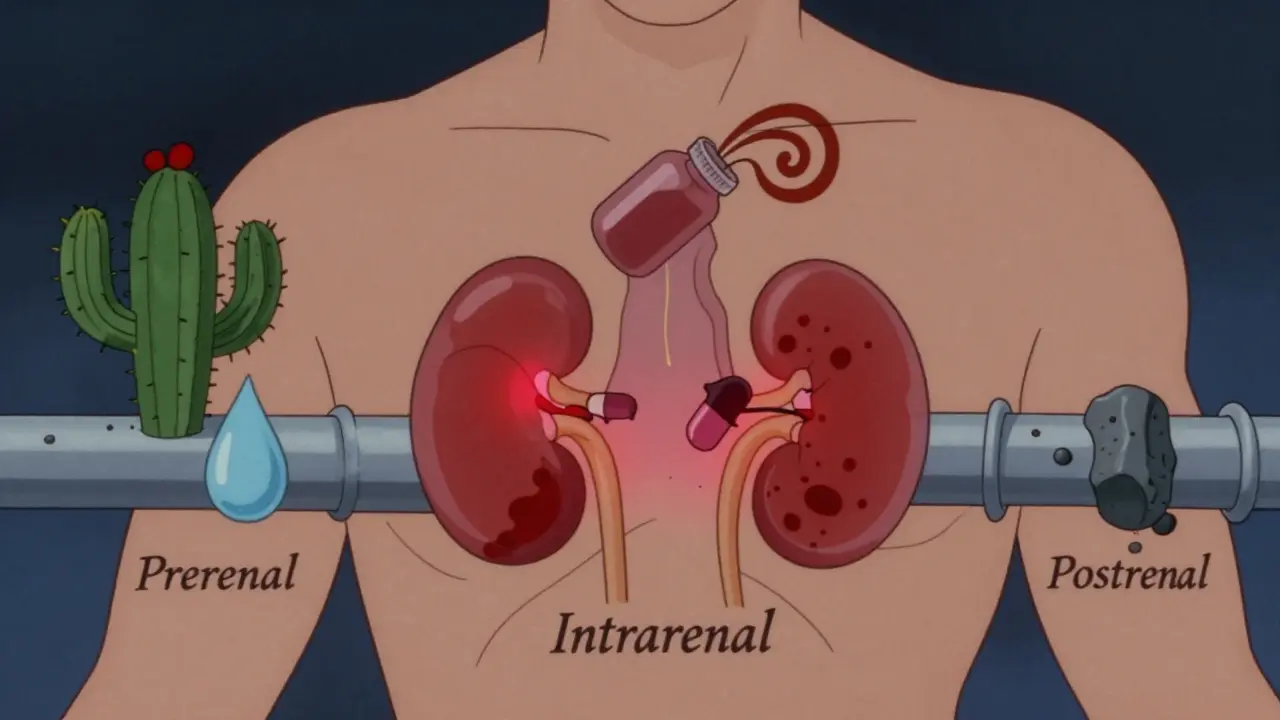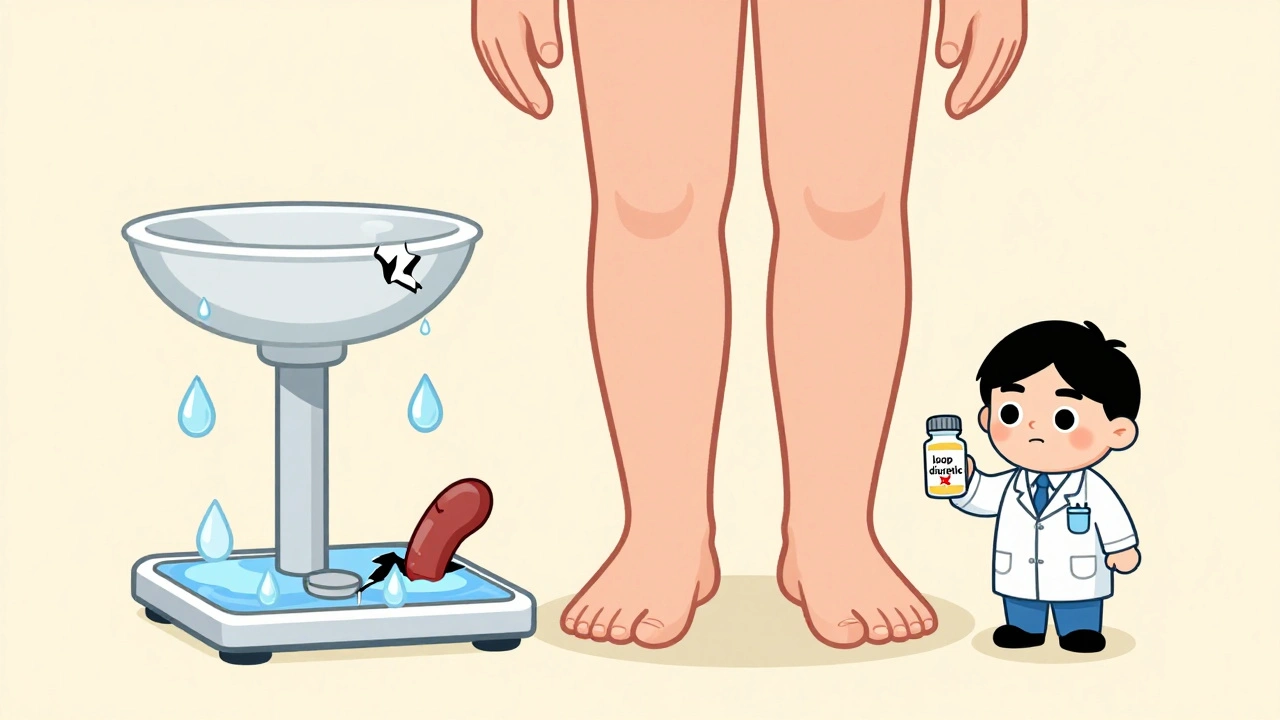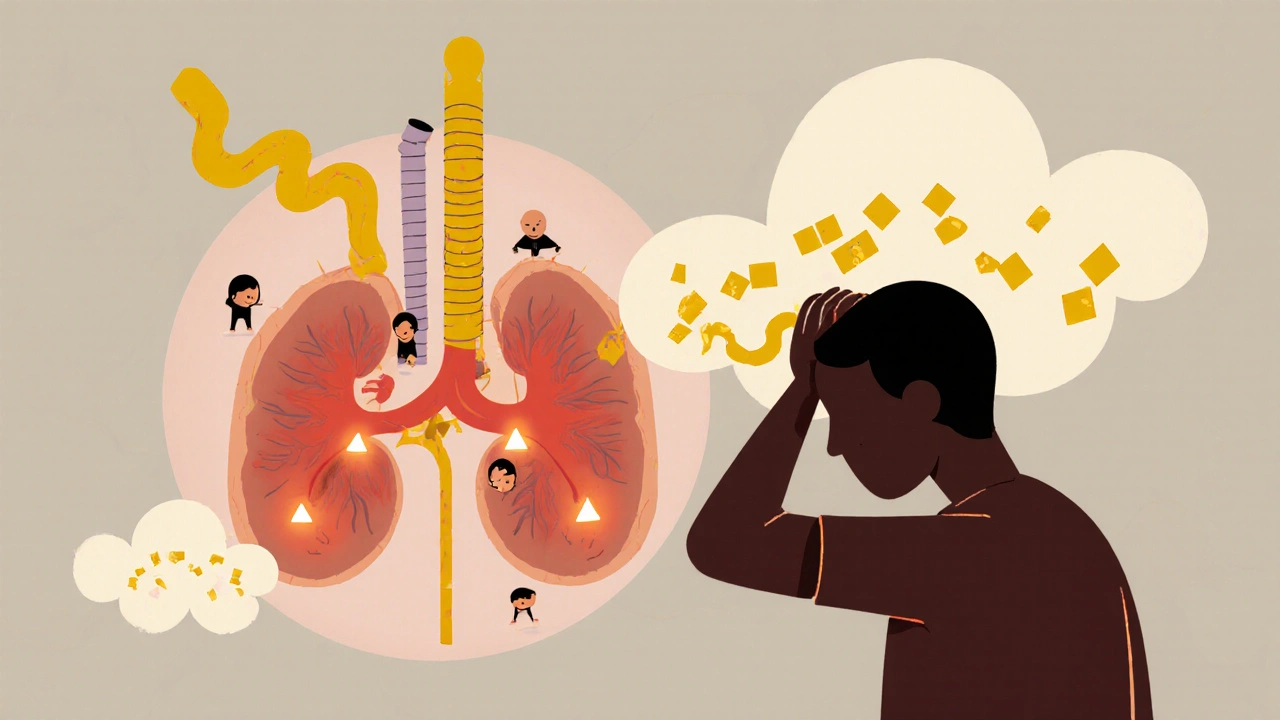Conditions: Clear Guides for Everyday Health Problems
You probably landed here because a symptom popped up and you want a quick, useful answer. This page groups short, practical guides to common conditions — what causes them, simple self-care, when to see a doctor, and safe next steps. No fluff, just usable info.
Common Conditions We Cover
We explain issues you’ll actually run into: colds and sinus infections, allergies, back pain, high blood pressure, diabetes basics, anxiety and sleep problems, and pregnancy-related symptoms like tinnitus. For each condition we list likely causes, symptoms to watch for, first-line self-care, and how clinicians usually approach treatment.
Take tinnitus during pregnancy as an example. Some expectant moms notice ringing or buzzing in the ears. That can come from hormonal shifts, increased blood flow, or changes in blood pressure. Simple steps help: check your blood pressure, reduce caffeine, get steady sleep, use gentle background noise at night, and ask your OB about safe supplements or medications. If the sound is sudden, loud, or comes with dizziness or hearing loss, get medical attention promptly.
Quick Self-Care Tips That Work
Small changes often make a big difference. For pain, try movement, heat or cold packs, and short walks rather than complete bed rest. For mild infections, stay hydrated, rest, and use over-the-counter symptom relievers as directed. For anxiety or sleep trouble, limit screens before bed, practice deep breathing, and keep a consistent sleep schedule.
Track symptoms. Write down when things started, what makes them better or worse, and any medicines or supplements you take. That short log speeds up diagnosis and helps avoid repeated tests. If you're pregnant, include prenatal vitamins and any pregnancy-specific changes like swelling or new headaches.
Medications: use them carefully. Over-the-counter pain relievers, allergy meds, and some heartburn drugs are fine for many people but can be unsafe in pregnancy or with other conditions. Ask your pharmacist or clinician if you’re unsure. Never mix medicines without checking interactions.
When should you see a doctor? Get urgent care for high fever, chest pain, sudden weakness, trouble breathing, sudden severe headache, sudden vision changes, or any symptom that gets rapidly worse. Make a routine appointment if symptoms persist beyond a few days, return often, or interfere with daily life.
Mental health matters. Persistent low mood, anxiety that disrupts work or sleep, or thoughts of harming yourself are reasons to reach out now. Therapists, primary care providers, and crisis lines can help with immediate support and treatment plans.
Want specifics? Click any condition listed on this page for a focused guide — for example, our post on "Tinnitus During Pregnancy: Expectations and Coping Strategies" explains causes, safe coping tips, and when to contact your OB. We keep each guide short and practical so you can act fast and feel better sooner.
If you need help deciding what to try first, look for the symptom checklist on each condition page. It points to simple, safe steps and tells you when to get professional care. Good health info shouldn't be complicated — it should help you take the next smart step.
Color Blindness: Understanding Red-Green Defects and How They're Inherited

Red-green color blindness is the most common form of color vision deficiency, affecting 8% of men and 0.5% of women. It's genetic, inherited through the X chromosome, and not a disease. Learn how it works, how it's tested, and how to live with it.
- January 13 2026
- Tony Newman
- 8 Comments
Pruritus in Cholestasis: How Bile Acid Resins and New Treatments Relieve Liver-Related Itching

Cholestatic pruritus causes intense, persistent itching due to liver bile buildup. Learn how bile acid resins like cholestyramine work, why antihistamines fail, and what new treatments like maralixibat offer for lasting relief.
- January 3 2026
- Tony Newman
- 13 Comments
Neck Pain: Understanding Cervical Strain and Effective Treatment Options

Cervical strain is the most common cause of neck pain, often from poor posture or sudden movements. Learn how to identify it, treat it effectively with physical therapy and exercises, and prevent it from coming back.
- December 29 2025
- Tony Newman
- 9 Comments
Acute Kidney Injury: Sudden Loss of Function and Recovery

Acute Kidney Injury (AKI) is a sudden drop in kidney function that can be reversed if caught early. Learn the signs, causes, treatments, and recovery odds-and how to protect your kidneys before it’s too late.
- December 20 2025
- Tony Newman
- 0 Comments
Dementia Types: Vascular, Frontotemporal, and Lewy Body Explained

Vascular, frontotemporal, and Lewy body dementia are three distinct types of dementia with different causes, symptoms, and treatments. Learn how to tell them apart and why accurate diagnosis matters.
- December 5 2025
- Tony Newman
- 8 Comments
Edema in CKD: How Diuretics, Salt Restriction, and Compression Therapy Work Together

Learn how diuretics, salt restriction, and compression therapy work together to manage edema in chronic kidney disease. Evidence-based strategies to reduce swelling, protect kidney function, and improve daily life.
- December 4 2025
- Tony Newman
- 8 Comments
Hyperparathyroidism: High Calcium, Bone Loss, and When Surgery Is Necessary

Hyperparathyroidism causes high calcium, bone loss, and chronic fatigue. Surgery is the only cure. Learn the signs, when to act, and what to expect after treatment.
- November 20 2025
- Tony Newman
- 12 Comments
Tinnitus During Pregnancy: Expectations and Coping Strategies

Tinnitus, often described as a ringing in the ears, can be an unexpected challenge for many during pregnancy. Hormonal changes and increased blood flow might intensify this condition. These disruptions can turn an already demanding time into something even more stressful. Fortunately, there are simple ways to make it more manageable, including strategies for minimizing distractions and promoting relaxation.
- March 10 2025
- Tony Newman
- 10 Comments
